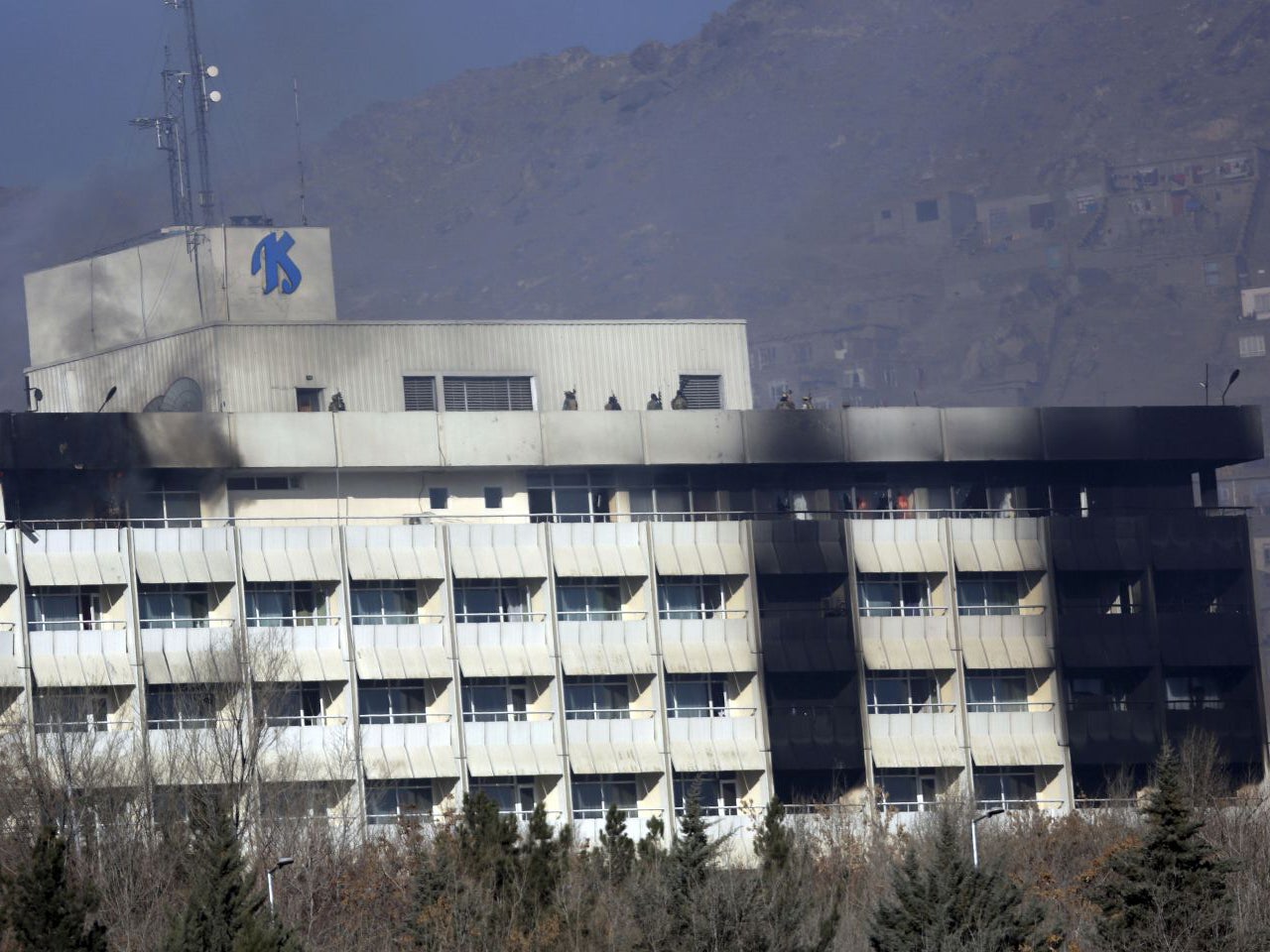Kabul attack latest: 14 foreign nationals and four Afghans dead after Taliban assault on Intercontinental Hotel
Most of the foreigners worked for a private Afghan airline, says interior ministry

Your support helps us to tell the story
From reproductive rights to climate change to Big Tech, The Independent is on the ground when the story is developing. Whether it's investigating the financials of Elon Musk's pro-Trump PAC or producing our latest documentary, 'The A Word', which shines a light on the American women fighting for reproductive rights, we know how important it is to parse out the facts from the messaging.
At such a critical moment in US history, we need reporters on the ground. Your donation allows us to keep sending journalists to speak to both sides of the story.
The Independent is trusted by Americans across the entire political spectrum. And unlike many other quality news outlets, we choose not to lock Americans out of our reporting and analysis with paywalls. We believe quality journalism should be available to everyone, paid for by those who can afford it.
Your support makes all the difference.Fourteen foreign nationals and four Afghans were killed when the Taliban attacked Kabul‘s Intercontinental Hotel overnight on Saturday, Afghanistan’s interior ministry said.
The number of casualties is expected to rise following a 13-hour siege that ended on Sunday.
“Eleven of the 14 foreigners killed were employees of KamAir, a private Afghan airline,” said ministry spokesman Najob Danish. KamAir also announced some of its flights had been disrupted because of the attack.
Ukraine said one of its citizens was killed in the attack.
Ten other people, including six from the security forces, were reported wounded and more than 150 people, including 41 foreigners, were rescued from the hotel, Mr Danish said.
The Taliban claimed the attack, which began at about 9pm on Saturday, claiming five gunmen armed with suicide vests targeted foreigners and Afghan officials.
Taliban spokesman Zabihullah Mujahid said the insurgents initially planned to attack the hotel Thursday night but postponed the assault because there was a wedding under way.
The attack unfolded almost six years after Taliban insurgents launched a similar assault on the property, which is not part of the Intercontinental chain of worldwide hotels.
Afghanistan’s Interior Ministry said a private firm assumed responsibility for securing the hotel around three weeks ago. It added it is investigating how the attackers managed to enter the building.
During a press conference, Mr Danish said early investigations showed that six insurgents had entered the hotel from the northern side and stormed its kitchen. Two attackers were killed by special forces on the sixth floor of the hotel.
“We need to complete our investigation, but our initial reports show that the attackers were moved in to the hotel,” said Mr Danish.
Mumtaz Ahmad, a provincial telecommunication employee for Helmand province who survivor the attack, said: “I was on my way from my room toward the reception, when I the elevator door opened, I saw two-armed suicide bombers. People were escaping and the attackers were firing at them.”
Afghan security officials confirmed that 34 provincial officials were gathered at the hotel to participate in a conference organised by the Telecommunication Ministry.
A fire broke out at the hotel as the fighting raged, and the sound of explosions could be heard throughout the standoff. Live TV footage showed people trying to escape through windows on the upper stories.
Captain Tom Gresback, spokesman for Nato-led forces, said Afghan forces were leading the response efforts. He said that according to initial reports, no foreign troops were hurt in the attack.
Neighbouring Pakistan condemned the “brutal terrorist attack” and called for greater cooperation against militants. Afghanistan and Pakistan routinely accuse each other of failing to combat extremists along their long and porous border.
Afghan forces have struggled to combat the Taliban since the US and Nato formally concluded their combat mission at the end of 2014. They have also had to contend with a growing Isis affiliate that has carried out a number of massive attacks in recent years.
In the northern Balkh province, insurgents burst into a home where several members of a local pro-government militia were gathered late on Saturday, leading them outside and killing 18 of them, said General Abdul Razeq Qaderi, the deputy provincial police chief. Among those killed was a tribal leader who served as the local police commander, he said.
In the western Farah province, a roadside bomb killed a deputy provincial police chief and wounded four other police early Sunday, according to General Mahruf Folad, the provincial police chief.
The Taliban claimed responsibility for both attacks.
In the western Herat province, a roadside bomb struck a vehicle carrying 13 civilians, killing all but one of them, said Abdul Ahad Walizada, a spokesman for the provincial police chief. No one immediately claimed the attack, but Mr Walizada blamed Taliban insurgents, who often plant roadside bombs to target Afghan security forces.
AP
Join our commenting forum
Join thought-provoking conversations, follow other Independent readers and see their replies
0Comments